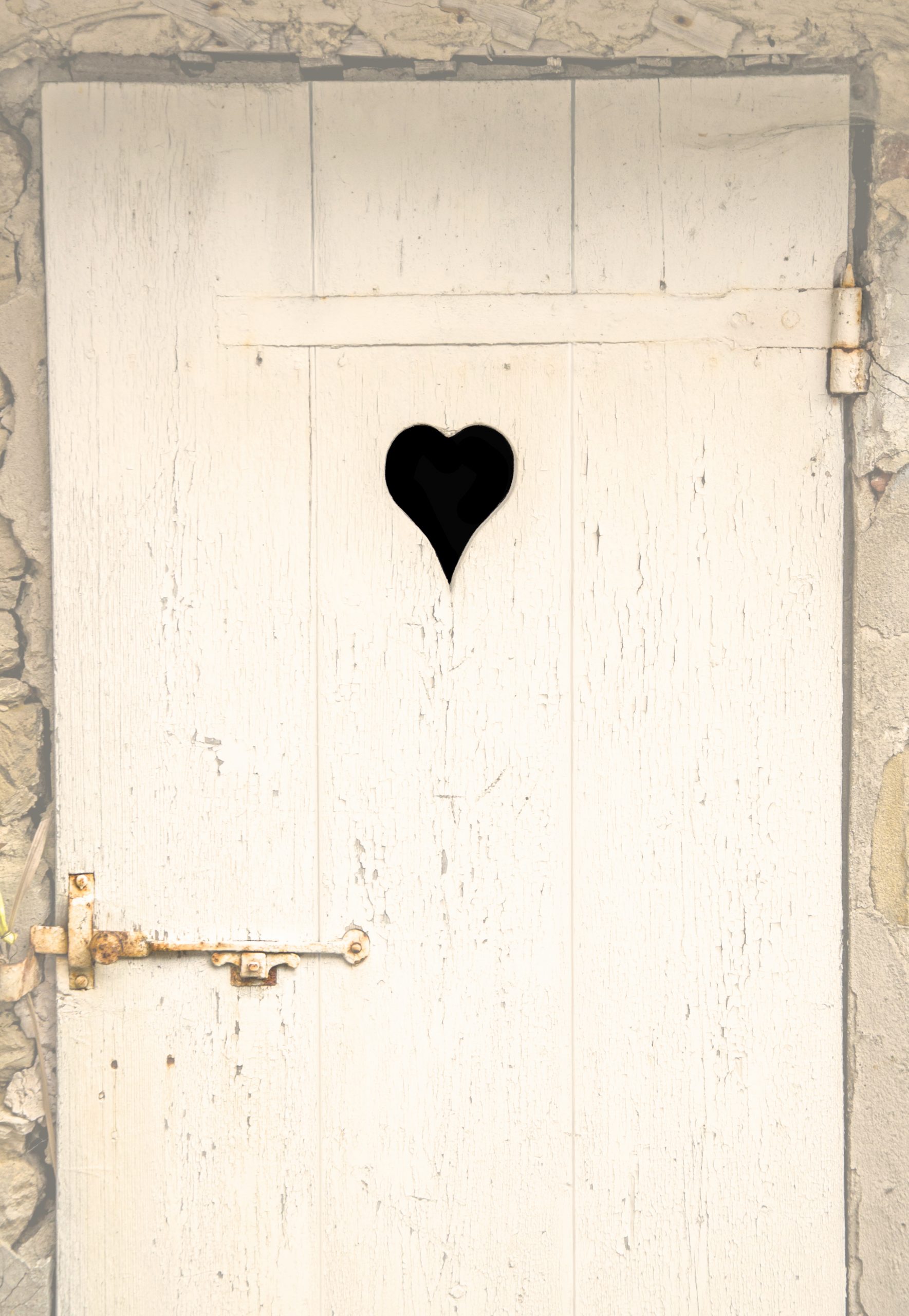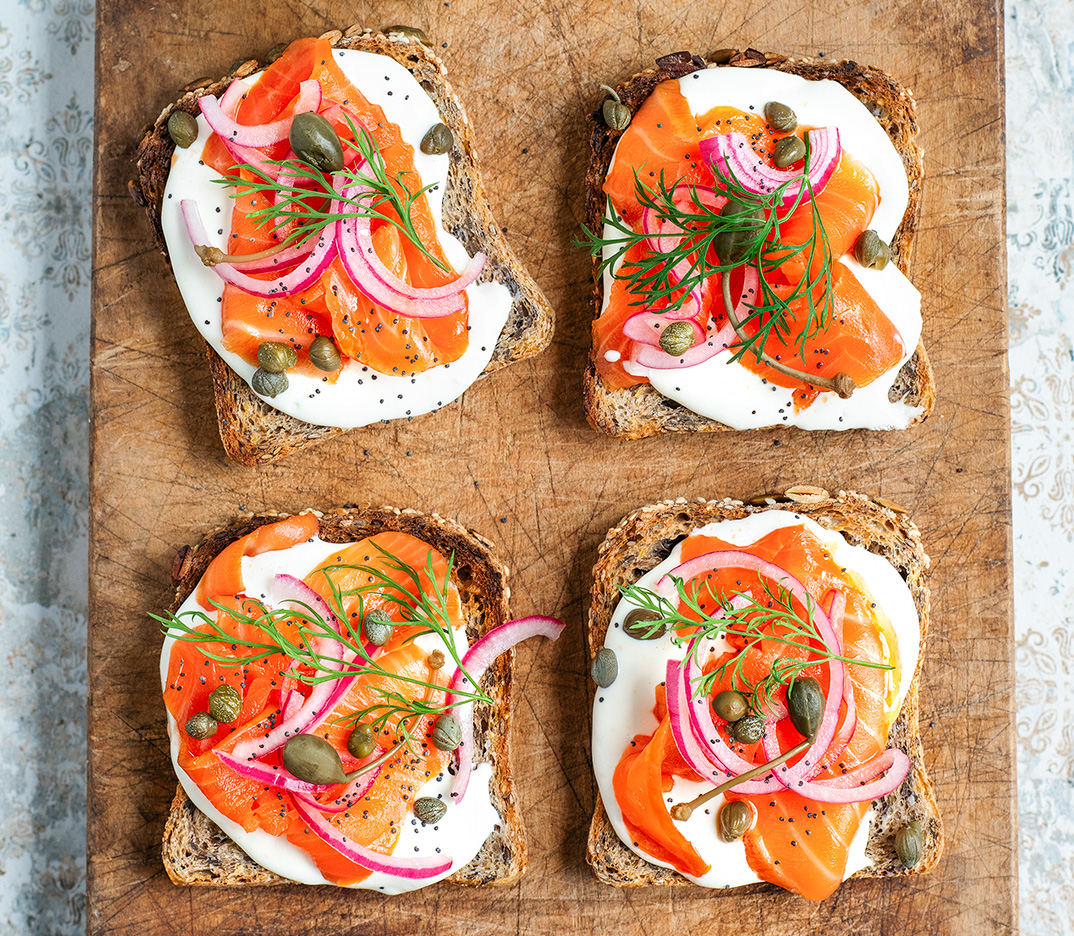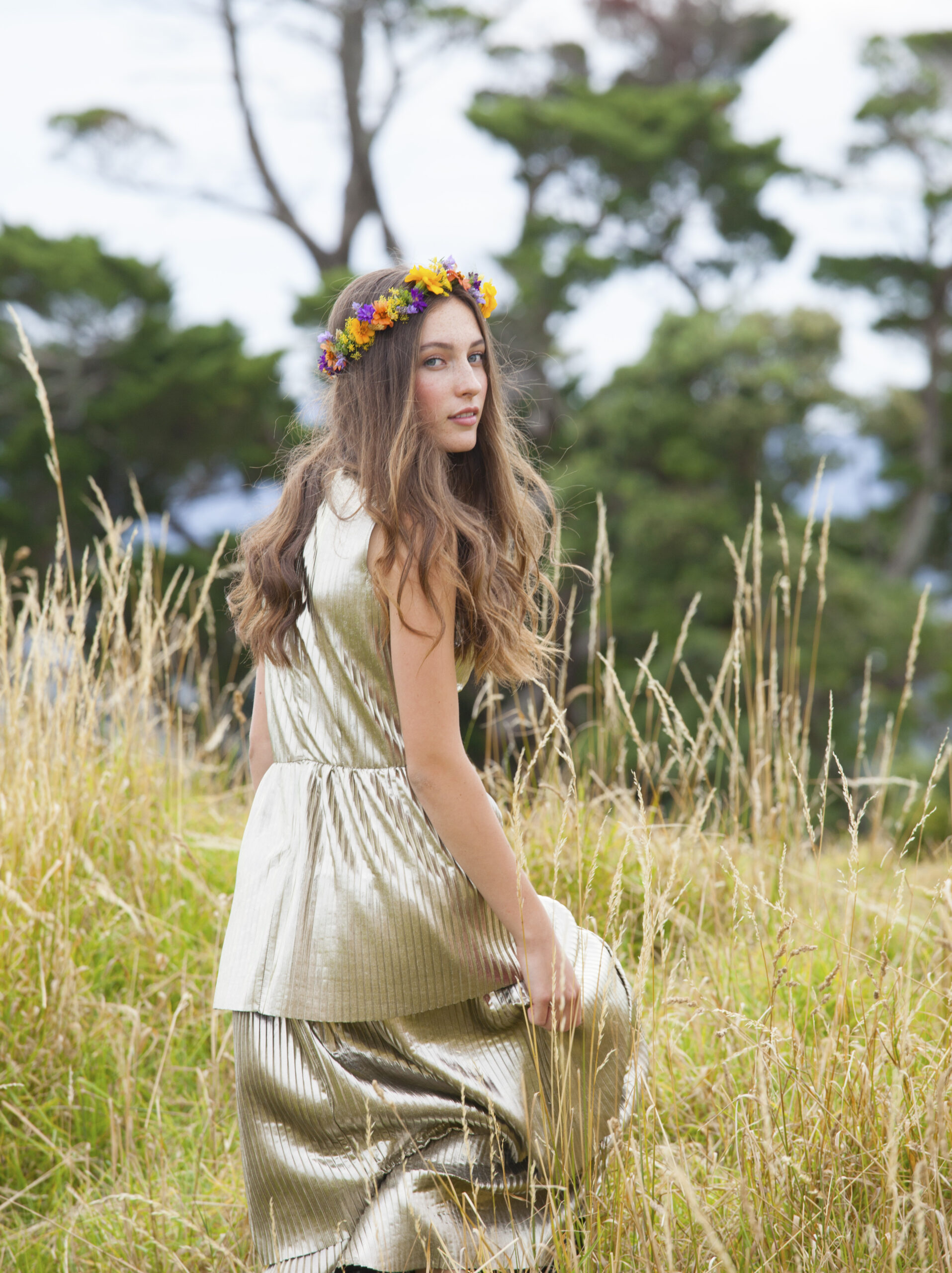No one told us when we signed up for being human that disappointment and grief were part of the deal. Sylvia Giles examines how our view of grief has changed, and how different people deal with the slings and arrows of outrageous fortune.
We were promised sufferings … and I accept it.
I’ve got nothing that I hadn’t bargained for.
Of course it is different when the thing happens to oneself, not to others, and in reality,
not imagination
– CS Lewis, A Grief Observed
Grief is found in the details. It’s agonising over what to do with a person’s possessions, or noticing the absence of a distinctive meow. It’s missing a loved one’s advice, or the sound of them pottering in another room, or it’s hearing a surprising story about them in the wake of their death.
And grief is a period of adjustment. As Valerie Leveson, a counsellor at Auckland’s Grief Centre, puts it, it’s the reconstruction and recalibration of what someone sees as their future so it reflects life without the person who’s gone. “Part of the loss of grief is the loss of future,” she says.
Valerie facilitates group and individual counselling among her clients, and says there are many common myths about grieving. She begins with the Elisabeth Kübler-Ross model of the five stages of grief (denial, anger, bargaining, depression and acceptance), and the expectation that people will progress through them in a linear manner. “The stages were based on people who were dying of cancer, and they’ve been generalised to some extent,” says Valerie. “They can all be aspects of grief but you don’t need to necessarily go from one stage to the next – you can be in one, and then go back and forth between another.
“It’s not that you graduate from one stage, and then go on to the next, then gradually reach acceptance, and then you’re fine and you’ve forgotten or detached from the person. It just doesn’t happen like that. A lot of people worry that they’re not grieving properly if they’ve never been in denial, or if they’re not angry, for example. That said, they very much can be aspects of grief, and Kübler-Ross was instrumental in its study. It’s just that she’s been overtaken.”
The Freudian view was that in order to recover from grief you had to completely detach from your loved one, especially if you ever wanted to love again. “More recent research recognises that most people continue the bond,” says Valerie. “It can be healthy or unhealthy – but they do continue the bond in that they think of the person, speak to the person, or sometimes they may keep pictures or a jacket belonging to the person.
“That’s a more modern way of looking at it: that we have a great capacity to love, and we can still love after death. Basically, the grief process is about learning how to continue to love somebody in death that you loved in life.”
There are an enormous number of variables, says Valerie, but what comes out very strongly in post-modern research on grief is that the experience is highly individual. One person can even have very different grief reactions depending on who they’re grieving for.
Good talks to five different women about their experiences of grief, and what it’s showed them.
Sophie de Jong, a 27-year-old mental health worker, is in the middle of packing up her parents’ house on Auckland’s North Shore. She sorts and packs in four-hour stints, then it’s time for a rest. Sophie’s mother died of a brain tumour four years ago, and two months before we speak, her father died in a sudden and yet expected way; after a series of brain bleeds over a number of years, he had one big enough to cause him to die, after four days in hospital. Now she decides the fate of familiar objects that she has no idea what to do with, such as the 60 antique cameras that her father, a photolithographer, had in his collection.
There were nine months in between her mother’s diagnosis and death, and Sophie says she’s blocked out a great deal of it – the daily grind of looking after someone who is terminally ill. Sophie says her own way of grieving involves repressing a large amount of emotion, only crying for the first time a year and a half after her mother’s death. Now, with her father, her grief is quite a different experience.
“To say the patient is getting over it after an operation for appendicitis is one thing; after he’s had his leg off is quite another. After that operation either the wounded stump heals or the man dies. If it heals, the fierce, continuous pain will stop. Presently he’ll get back his strength and be able to stump about on his wooden leg. He has ‘got over it’. But he will probably have recurrent pains in the stump all his life, and perhaps pretty bad ones; and he will always be a one-legged man. There will be hardly any moment when he forgets it. Bathing, dressing, sitting down and getting up again, even lying in bed, will all be different. His whole way of life will be changed. All sorts of pleasures and activities that he once took for granted will have to be simply written off. Duties too. At present I am learning to get about on crutches. Perhaps I shall presently be given a wooden leg. But I shall never be a biped again.”
– CS Lewis, A Grief Observed
“I’m more functioning. But there’s a loss of not just my dad, but my mum and my dad. It feels like this is the end of my childhood and that I have no one left now. With my dad it’s the unit – and I loved him so much as well, but it’s everything, it’s more – now neither of them will be there for events in the future. It just feels like the loss of something more with Dad.”
What Sophie is describing is something Valerie recognises well. “What we find is that present griefs bring out past griefs. It’s an experience that a lot of people have; they’re missing one person but it actually opens the wound of a previous death, so you get the feeling of multiple deaths.”
Talking to Michelle Langstone, an actor and bookstore manager, about her grandmother’s death 17 years ago when Michelle was 18, you get a sense of how grief might evolve for a person. “It was a really intense, full grief, fuller than any other grief I’ve ever felt,” she says. “But it’s very seldom now that I think of her with sadness, or a sense of loss. I think of her with joy and gratitude. It has changed, and I’ve been aware of that, particularly in my 30s.”
Michelle describes her grandmother as playful, a “way-shower” and a great storyteller with an amazing English accent. “She was one of the first people I would tell if anything significant happened, and she would always be there for the marked moments – so all through my adulthood I’ve thought, ‘I’d have loved to have known her as a fully formed woman, as this adult that I am’,” says Michelle. “I guess because I lost her at that age, I’ve carried through what that relationship might be and I think that’s something about grief – for me – is that it transforms itself, into a living conversation in another way, with a memory. You reinvent that person alongside you in a different way.”
Michelle also talks of the reappearance of grief at various times. “Any other primary loss since then has triggered what that loss of my nana felt like. It’s as though there’s a gash or a hole in the fabric of my little universe, where other things can get in – like suddenly that blanket has been torn away. It takes you back to that feeling of primary grief, and all grief after that is a reminder of the initial one, so it becomes something that grows upon itself. Not overwhelmingly, but it all becomes part of one understanding of grieving.”
Grief isn’t just about death, although 34-year-old beauty editor Annie* knows about that too: she lost her second pregnancy in July 2010, after a scan revealed her baby wasn’t developing. Grief can be about all sorts of loss – the loss of a job, dealing with disability, or the end of a marriage. In the following March, when Annie was once again pregnant (at nine weeks) her marriage ended. Annie laughs, “That’s coming up three years ago now.”
Everything she describes is grief. She cried. A lot. “I couldn’t believe it, because I was so in love with my husband. It’s funny, because my biggest fear in life was that I couldn’t survive without him, and that I wouldn’t be able to cope without him. And the lesson I’ve learned is that of course you can. You are so much stronger than you think you are. But like any grief, it hits you at any time.”
Annie may not have had a plan to start with, but she very quickly had a purpose – to get on with caring for her four-year-old son as well as her unborn child. “The minute my husband left, I booked in with a counsellor – so for an hour a week I got to talk about my grief. Within those four walls you get it all out. I also let myself cry every morning in the shower, which was a nice one because my son couldn’t see me,” she says.
*Some names have been changed to protect privacy
When disappointment strikes
After the Global Financial Crisis hit in 2008, many Kiwis went bankrupt or lost their life savings. It was around this time, after an investment went sour, that Marion* and Dave* realised they couldn’t keep on top of their debts and they’d have to sell their inner-city Auckland home. Marion recounts how she coped with this disappointment:
The worst moment was having to tell the kids we had to move out. One of the children got totally obsessed with winning Lotto. But as the weeks went by it was obvious that wasn’t going to happen. We said to the kids, ‘Nobody is divorcing anybody, we just can’t stay in this house.’
I’d trusted Dave to make things right – he was working 24/7 and the pressure was relentless. It was our family home and we’d been there for 18 years, but in the end we had to let it go. If we didn’t have the kids to raise we might have fallen apart completely. When you have dependants you have to dig a bit deeper.
Dave’s an optimist and what I learned bitterly is that you can’t eat optimism. Some friends asked if I was going to leave him. I can’t believe people think like that. He’s not a bad person – you can’t just walk away.
I come from a family of strong women who just got on with it. But there was a whole lot of anger – and grief. I did lots of counselling. Moving was also a chance to get rid of loads of stuff, which was really cathartic. I’ve never been down the street again. I can’t. But we decided to stay in the area so the kids could stay at school and keep up with their friends. We are staying here until the last one leaves home.
You realise who your friends are and how you’re valued or perceived by others. The financial collapse impacted a lot of Kiwis – with little pockets of people who’ve not been touched at all. I hated going to my book club. They just seemed like a bunch of over-privileged women. Their concerns seemed so trivial.
My hairdresser and I laugh about winning Lotto. The other day he asked me if I would buy back my old house if I won. I said no. You have to look forward.
It sucked for a long time. In the end I got so sick of being miserable – it was driving me nuts. Every few months we’d fight and stuff would come pouring out.
I’m not someone who keeps a diary, but my counsellor suggested I write it all down. It was the best thing ever. Dave and I went away for the weekend and I said, “I’m going to ask you to read something and then we’re going to burn it.” It really helped.
You’ve got to get back on the horse again, because the alternative is far worse. You can fester but it eats you up and you get sick. At some point you just have to let it go.
No one ever told me that grief felt so like fear. I am not afraid, but the sensation is like being afraid. The same fluttering in the stomach, the same restlessness, the yawning.
– CS Lewis, A Grief Observed
It’s hard to get past the Kiwi thing of owning your own home. Rent is prohibitive – it takes both our incomes to pay the bills and live. I try to save but realistically we’re unlikely to manage a deposit for another place unless we get out of town. It’s scary to think we’re heading into the older stage of our lives without that asset. But it’s also kind of freeing. You don’t have to pay rates! I suggested to Dave we go on a trip.
I’ve learned you can work really hard for something, but that doesn’t necessarily mean it will work out. I was sad our kids had to learn this hard life lesson, but they still had two loving parents and a home to live in. Just not the home they were used to. I guess it’s about gratitude and learning empathy. Recently the parents of my eldest daughter’s friend split up. It was a huge shock. My daughter has been very supportive of her friend. The other day she told me she’d had a very happy childhood.
I wouldn’t say it’s been a good thing. But we certainly appreciate life a lot more. We’re rich in that we have each other. We’re good friends, and so many of our friends aren’t together anymore.
–Sarah Heeringa
“With animals, people react can react in quite different ways,” says Cathy Agnew, a 42-year-old social worker from Lower Hutt. “People who love animals or have a special place for cats, they’ll totally get why you’ll be upset. But people who don’t, they … don’t understand.”
Cathy’s cat Morris was a fixture by her side for more than ten years. Initially Morris came with her then-boyfriend, who took the cat when they split up. When her boyfriend didn’t look after Morris, he ended up in a shelter across the road, so Cathy collected him.
“He was just a really nice cat,” she says. “He wasn’t one of those scratchy, nasty, crazy cats, he was cuddly. And he had a very definite purr – a noisy loud purr, and a very distinctive meow.”
When Morris got sick, Cathy knew what she wanted to do. “I’m of the opinion that when an animal is starting to suffer, you’re not doing that animal any favours by keeping it alive.” She describes her and her partner’s “stoicism” at the vets, and then later at home when the reality of their loss kicked in, with a self-conscious laugh. And that’s the problem: when dealing with grief about pets, you’re not always sure if people will understand.
As CS Lewis puts it, “I thought I could describe a state; make a map of sorrow. Sorrow, however, turns out to be not a state but a process.”
Disenfranchised grief, explains Valerie, is a name for real grief that is not supported by the community. “The griever can feel very isolated and alone … They think, ‘Oh well, it’s just a cat.’ But all grief is grief,” she says.
Because of the lack of community support in these instances, the ritual central to other forms of grief is often missing. “What I say to people who are experiencing disenfranchised grief is to think up their own ritual because it can be very helpful,” says Valerie. “It’s honouring whatever the loss is. If it’s something like losing a job, sometimes the ritual can be writing a letter to the boss and burning it, or putting it out to sea.”
Morris was given a burial, with Cathy’s dog Poppy – a grand 82 in human years and a long-time companion of Morris – in attendance.
Was ritual helpful? “Yes, I think so – absolutely,” Cathy says. “When I think of little old Morris and all the parts of my life that he shared with me, it’s quite incredible. Together with Poppy, and apart from my immediate family, they’ve been my longest companions. Even though they’re animals, being able to say a proper farewell is really important.”
Lost for words
If we find the concept of grief threatening, or we feel awkward or squeamish addressing the topic, it can compound the terrible struggle of knowing what to say to friends or work colleagues who have suffered a loss.
“The main thing is acknowledgement,” says Valerie. “It’s really important. It can be just a slight comment when you’re making coffee with a colleague, and you can say: ‘Hey, I heard about this, and I’m really sorry.’ That acknowledges the person; it acknowledges what they’re going through. It doesn’t have to be a big thing – it can be giving them a card. You can say, ‘You don’t have to read this now, read it later if you want’.”
At other times it feels like being mildly drunk, or concussed. There is a sort of invisible blanket between the world and me. I find it hard to take in what anyone says. Or perhaps, hard to want to take it in. It is so uninteresting yet I want the others to be about me. I dread the moments when the house is empty. If only they would talk to one another and not to me
– CS Lewis, A Grief Observed
Common sense also suggests avoiding the default greeting, “Hi, how are you?” as it demands a response from someone who may be feeling vulnerable about their state of mind or wellbeing. “Hi, it’s great to see you,” is just as friendly but far less confronting.
“A lot of people feel, especially at work, they don’t want to go there in case the other person will cry,” says Valerie. “But hey, what’s wrong with crying if you’ve lost someone? In fact crying is a very good thing, and quite cathartic.”
Is there a period of time after which, if people are still feeling terrible about a loss, they might want to consider getting extra help? According to Valerie, grief is too individual to be too prescriptive about this. “Most people don’t need grief counselling,” she says. “Most people, with their family and friends, can deal with it. But if it is going on for an extended period of time, that’s when you really do need extra help.”
Group counselling and support work can result in a lot of camaraderie, and Valerie often recommends it to clients she senses are being isolated by their grief. It also provides a safe place with people who understand. In such situations a person is unlikely to be told, well meaningly, “Aren’t you over him yet?” Which according to Valerie, people sometimes say.
Because human relationships are complex things, grief can sometimes bring up other issues – and in these instances individual counselling can be beneficial. “With face-to-face counselling, you can go to those places and help that client have an outlet,” says Valerie.
Whatever the process, Valerie suggests people dealing with grief be patient with themselves – at work and at home. “While you’re grieving, you’re often not on top form,” she says. Be gentle and caring with yourself, don’t compare yourself to other people, and trust that things will change.
Hana*, a 27-year-old cafe manager, lost her nana in April. Her nana was 84 when she passed away, and while she had been sick for a long time, outliving some doctor’s expectations by as much as ten years, it still came as a great shock. In a close-knit family Hana was very close with her nana. Her family’s process was not one of a funeral but of tangi, where the body came home to her uncle’s house for two days, in a time when friends and family could visit. In that time, a female member of the family was always with her. On the third day the body was taken to the urepa, with a service afterwards at the marae.
The tikanga (protocol) observed can differ around New Zealand, but one of the basic observations is of tapu (sacredness) around the body – which means no food and drink. “What I realised was that the way a tangi is set out makes it a really good way to go through grief and to mourn – there’s a reason why you’re not standing there with cake, having a chat and talking about other things.”
Food remains important, however. Hana’s uncle, a teacher, turned up to see her nana with 70 kids from his school. She says: “It was like, ‘Get into the kitchen now and make 200 sandwiches! Cut some slices!’ … Eating’s a part of the whole process, because you have to break the tapu and become noa [free from restriction] again by eating food, and washing.
“I think that’s important – you go in and you have grief, but then you come back out and everything’s normal,” she says.
And life goes on?
“Yeah.”
Hana also talks of the storytelling, especially at night, over the three days. “We learned so much about Nana in that period – which is almost something else to grieve for. In that time my mother learned about a whole new side to her mother.”
She feels very lucky to have gone through the tangi process, because it felt like she had time to grieve and get things out. “It was all really quite beautiful and we got to deal with our grief and become closer as a family all over again,” she says. “I can’t speak for other cultures, but for us it was the best. I would never say it was better than a Pakeha way, but in terms of our family, it was the best way.”





